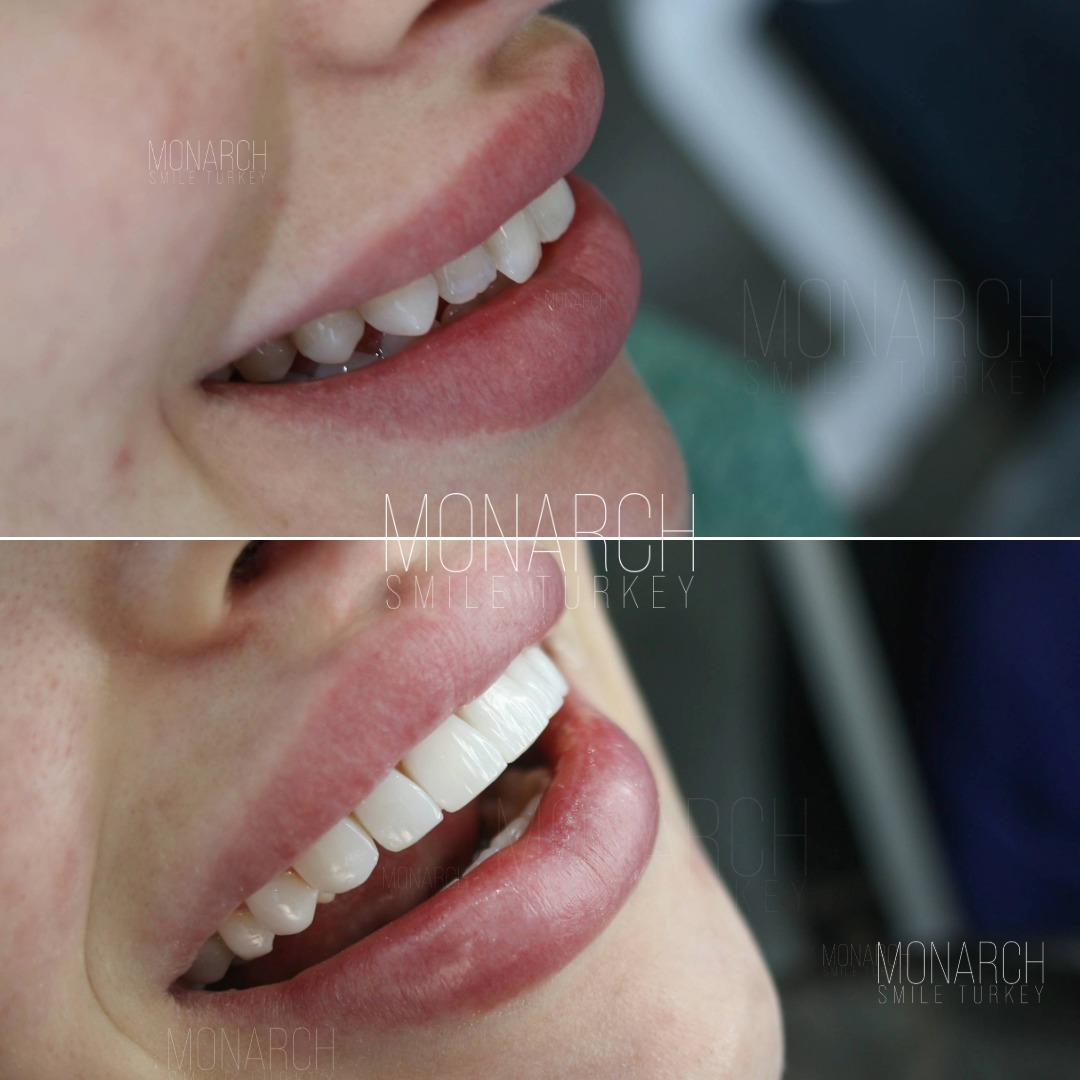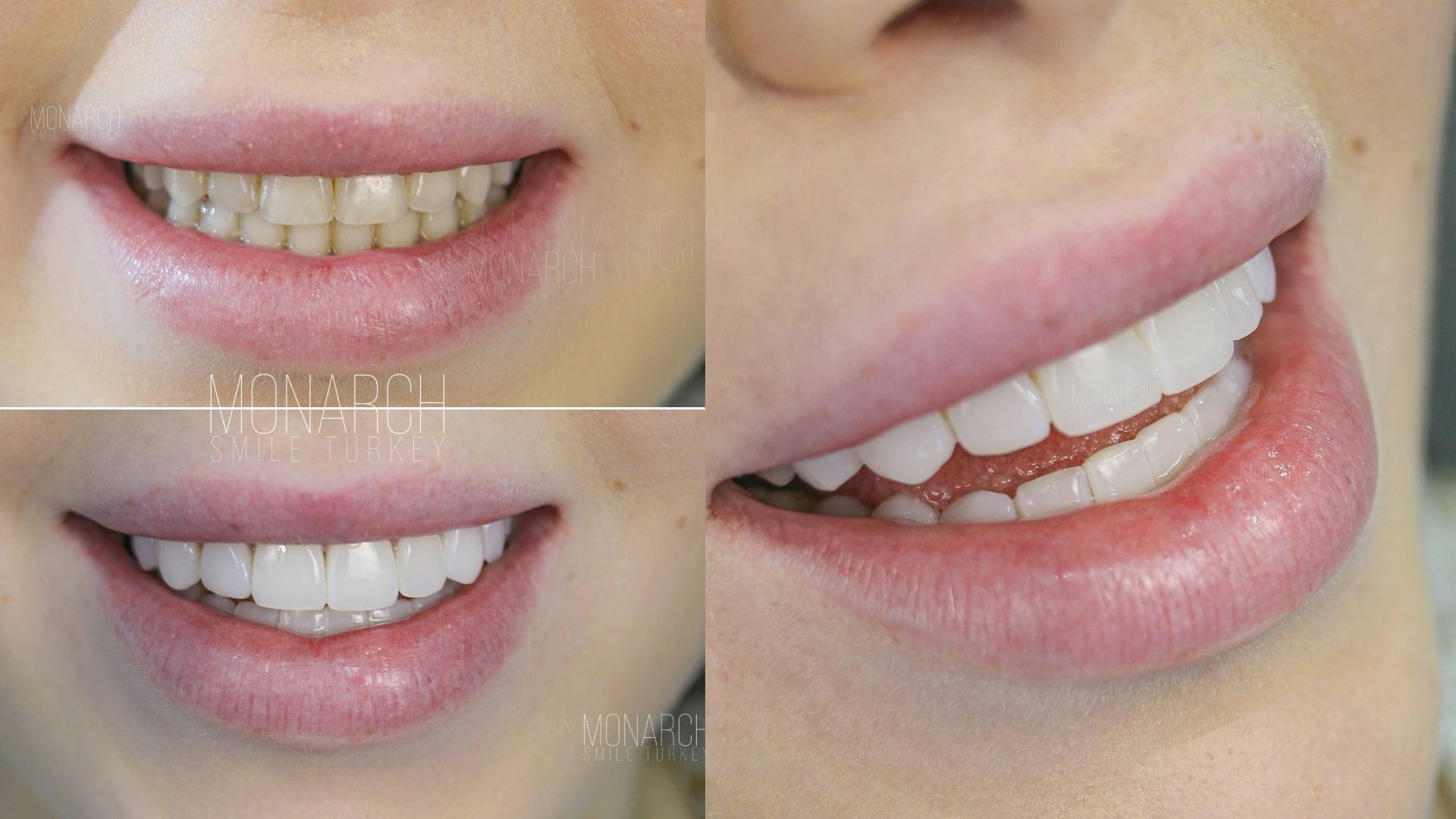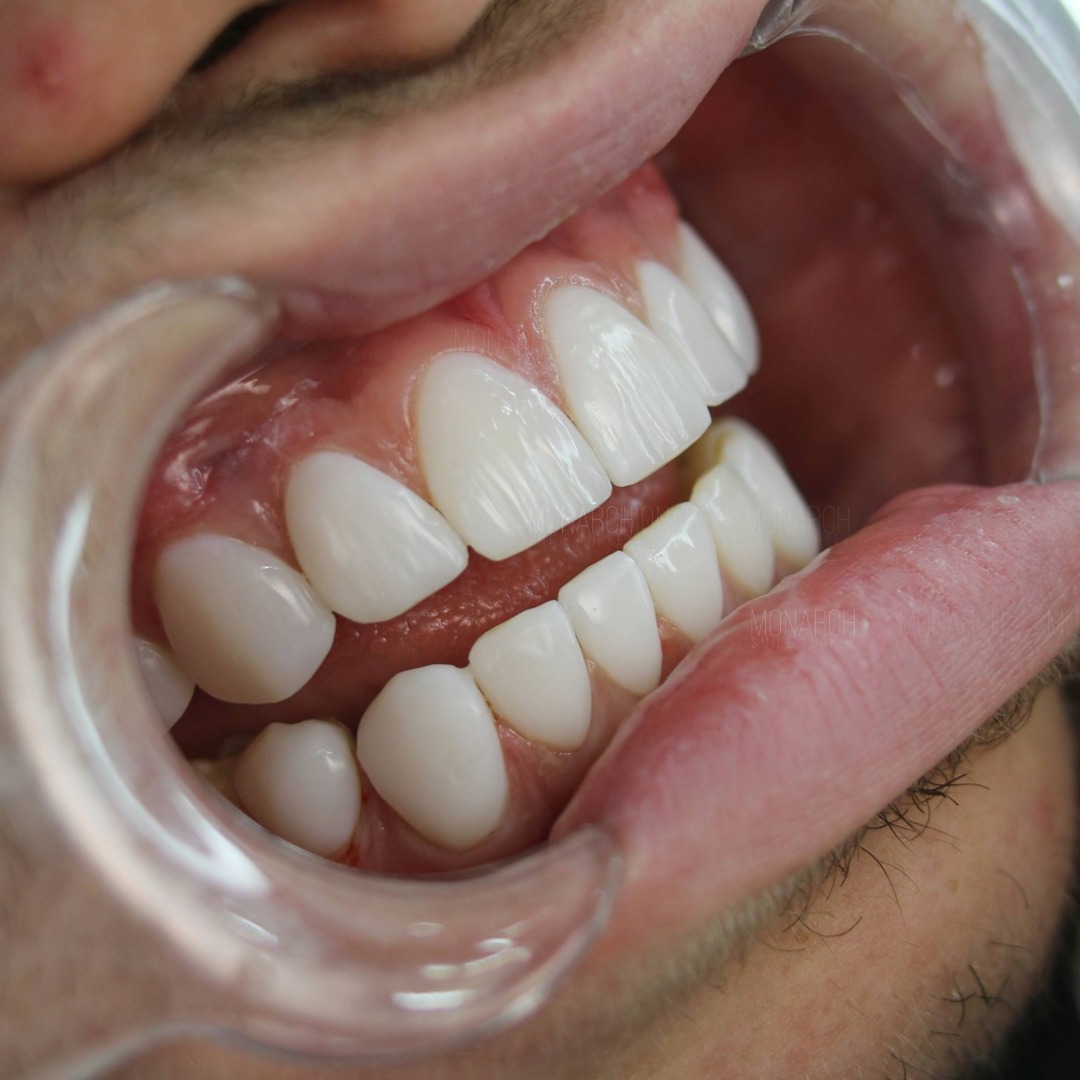How Long Does Tooth Bonding Last?

What is composite bonding?
Composite bonding is a quick cosmetic dental treatment where a tooth-coloured resin is shaped and polished to repair various tooth damages such as cracks or gaps. Think of it like sculpting, but on your teeth.
You don't feel any pain during the procedure. No need for drilling. Often you can complete it with just one appointment. Your dentist matches the resin exactly to your natural tooth colour. So, results are more aesthetic. That's why many people choose it to boost their smile without going too far.
Tiny chip on your tooth? Composite can hide it in minutes.
Gap between your front teeth? Bonding fills it in. No braces, no fuss!
It doesn't last forever! But with good care, your new teeth stay looking great for several years. No needles, no downtime, just an instant refresh!
How does composite bonding work?
It's actually pretty simple. Your dentist first roughens the surface of your tooth. Then, a special liquid is applied to help the resin stick. After that, the tooth-coloured resin is added and shaped. If it looks right and aesthetic, the dentist uses a light to harden it. Final step? Polishing.

How long does dental bonding last?
On average, composite bonding lasts 5 to 7 years. But that number isn't set in stone! It depends on some factors!
Want it to last longer? Avoid biting hard foods with bonded teeth. Brush twice, floss daily, and don't skip your check-ups. Smoking, nail-biting, or chewing pens? That's how bonding wears out fast.
Coffee every day? It stains the resin quicker than natural teeth.
Grinding your teeth? Big problem. Ask your dentist about a night guard.
Think of bonding like a good pair of white trainers. They look amazing, but only if you take care of them.
How to maintain your composite bonding & How can I care for my composite bonding?
- Stick to brushing your teeth twice a day with a gentle toothbrush.
- Choose a smooth, non-whitening toothpaste. Harsh ones can wear it down!
- Floss daily to keep the edges clean and bacteria-free.
- Go for alcohol-free mouthwash to avoid drying and weakening the bonding.
- Skip hard snacks like ice or popcorn kernels. They can crack the material.
- Cut back on dark drinks and smoking to avoid staining.
- Never use your teeth as tools. Not even 'just this once.'
- If you grind your teeth, a night guard is a must. You should use them!
- Don't skip your regular dentist visits. You can fix small issues early.
What determines how long composite teeth bonding takes?
It usually takes 30 to 60 minutes per tooth. But it really depends on what's being done. A small fix is fast. Full reshaping or closing gaps? That needs more time.
More teeth, more details, more shaping. All increases treatment time.

Veneers vs Dental Bonding: Which one is better?
|
Feature |
Veneers |
Dental bonding |
|
Material |
Porcelain |
Composite resin |
|
Treatment time> |
2-3 visits |
1 visit |
|
Durability |
1-15 years |
5-7 years |
|
Stain resistance |
High |
Moderate |
|
Cost |
More expensive |
Budget-friendly |
Natural appearance |
Very natural |
Good, but less perfect |
Tooth preparation |
Enamel removal needed |
Usually none |
Fixes |
Big cosmetic changes |
Minor issues |
Need a quick fix? Go with bonding.
Want a long-term glow-up? Veneers usually win.
Bonding is faster, cheaper, and doesn't usually need drilling. It's perfect for small chips, minor gaps, or quick smile tweaks. But it's not as strong and stains a bit easier.
Veneers are thin porcelain shells. You can use them long time. They resist stains better, and better for celebrity-smile look. But they cost more, and the dentist removes a bit of enamel.
So, which one is better?
It depends on your goals, your budget, and how long you want the results to last.
Both can transform your smile. One's like makeup; the other's more like a mini makeover.
What is the difference between a white filling and composite bonding?
Both use tooth-coloured composite, but their purpose is different. A white filling repairs decayed teeth, and it's about function. Composite bonding, on the other hand, improves appearance, and it's about aesthetics.
One fixes cavities, the other fixes smiles. Same material, different goals.
How long does composite bonding last on front teeth?
Composite bonding on front teeth typically lasts 5 to 7 years. With excellent care, it may last up to 10 years. Staining, chipping or wear can shorten that time. Regular dental visits help extend its lifespan.
How much does composite bonding cost?
Every smile is different. A single chipped tooth? Quick, simple and affordable.
The final cost depends on things like how many teeth you want bonded, the dentist's experience, the materials used, and whether you need extra treatments before bonding.
Please contact us to learn about exact prices.
Where can I get composite bonding in Turkey?
Turkey is one of the top destinations for cosmetic dentistry. You can meet with great clinics and skilled dentists. It is much more affordable than in the UK or Europe. Especially when it comes to composite bonding, results can be fast, natural, and budget-friendly.
Looking for a trusted place? Monarchsmile in Antalya, Turkey, is a solid choice. They specialise in dental treatments. Our team is working with precision and care!
Want to ask questions or book a consultation? Contact Dt. Ebru Yüceer and get started on your smile upgrade.
When is composite bonding not suitable?
Composite bonding isn't the best choice for every smile. If a tooth has major damage, deep decay, or large fractures, bonding may not hold well. Back teeth that handle heavy chewing? Not ideal! It can chip faster there.
Teeth grinding at night? Bonding wears down quicker.
Poor oral hygiene? First fix that; bonding needs a healthy base.
It also might not work if the colour difference is too big to hide or if the tooth structure is too weak to support the resin. In those cases, veneers or crowns are usually better.
So, bonding's ideal for small cosmetic fixes, not for heavy-duty repairs.
Frequently Asked Questions
Can you go back to natural teeth after composite bonding?
Yes. Composite bonding doesn't harm your natural tooth underneath. If you ever remove it, your original tooth shape is still there, just may need a little polish.
What are the downsides of composite bonding?
Composite bonding looks great, but it's not perfect. Composite isn't as strong as porcelain, so it can chip or wear down over time, especially if you bite your nails or grind your teeth.
Does it stain? Yes, faster than natural enamel.
Coffee, tea, and smoking all leave their mark.
It also doesn't last long. You'll likely need touch-ups after a few years. So while it's a quick fix, it's not a lifetime solution.
What happens when composite bonding wears off?
When composite bonding wears off, the tooth underneath is still there. You might notice some staining, small chips, or rough edges. In most cases, it can be repaired or redone easily by your dentist.
What happens after 5 years of composite bonding?
After 5 years, composite bonding may start to lose its shine or show slight discoloration. Small chips or wear can also appear, especially on front teeth. If needed, your dentist can polish, repair, or fully refresh the bonding.
Can composite bonding be done in one day?
Yes. Most composite bonding treatments are done in a single visit, often in less than an hour per tooth.
Does composite bonding hurt?
No. Composite bonding doesn't hurt because there's no drilling or needles in most cases, just surface work on the tooth. It's a gentle, non-invasive treatment.
Is composite bonding worth it?
Yes, especially if you want a quick and affordable way to improve your smile. It doesn't involve drilling, needles, or big procedures, and the results are instant. Small chips, gaps, or uneven teeth? Bonding handles them fast.
Will it last forever? No. But with good care, it stays looking great for years. So, if you're after a natural look without breaking the bank, it's definitely worth considering.
How to whiten composite bonding at home
Composite bonding can't be whitened with at-home whitening kits. The material doesn't respond to bleaching like natural teeth do. To refresh the colour, you'll need a dentist to polish or replace it.
Is composite bonding permanent?
No, composite bonding isn't permanent. It usually lasts between 5 to 7 years, depending on care and habits. Over time, it may chip, stain, or need touch-ups.
Can composite bonding be removed?
Yes, composite bonding can be removed. Dentists can take it off without damaging your natural tooth underneath. It's a reversible and safe procedure when done properly.
Can you get composite bonding on crooked teeth?
Yes, composite bonding can be done on slightly crooked teeth, but not always. If the crowding is mild, bonding can smooth out uneven edges and make the teeth look straighter. But if the teeth are too rotated or overlapping, orthodontic treatment might be a better first step.
Teeth bonding disadvantages
- Chips more easily than veneers
- Stains faster than natural teeth
- Doesn't last as long
- Not ideal for big damage
- Needs touch-ups over time
- Can wear down if you grind
- Less shine compared to porcelain
- Not ideal for back teeth
Sources
https://en.wikipedia.org/wiki/Dental_bonding
As MonarchSmileTurkey dental clinic, we are pleased to achieve results that exceed expectations even in the most difficult dental cases.
For more detailed information, please contact us or visit us at our dental clinic.
